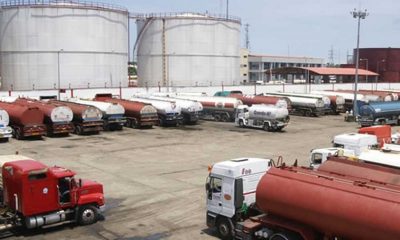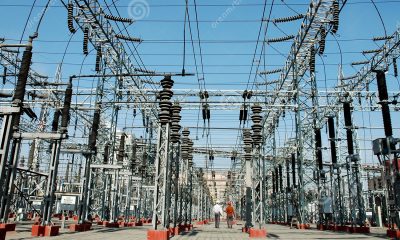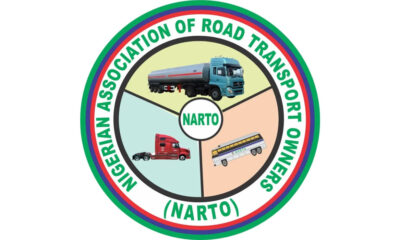metro
Petrol scarcity hits critical point nationwide as imports slump
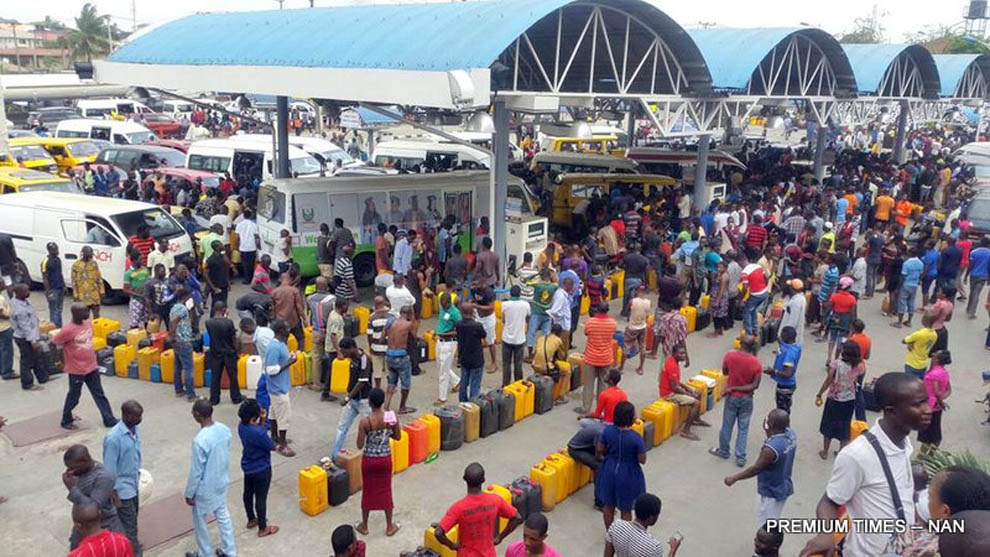
Petrol scarcity hits critical point nationwide as imports slump
The lingering petrol scarcity crisis in Nigeria has reached a critical point, with marketers unable to replenish their rapidly depleting stock.
As the shortage persists, amid the admission of $6billion debt to offshore product suppliers by NNPC Ltd, stakeholders are advocating for transformative measures to address the issue. They emphasise the urgent need to bolster domestic refining capacities and implement full deregulation of the petroleum sector.
They expressed worry that Nigerians may be on a long walk to freedom as NNPC Ltd, the sole importer of petrol, is currently cash-strapped and currently unable to sustain importation, leaving the country with a single option of hiking the price to reflect market realities.
Petroleum sector players have also urged the government to exhibit the boldness and resolve necessary to decisively end the subsidy regime, rather than imposing further hardships on the Nigerian populace.
The Publicity Secretary of the Crude Oil Refiners Association of Nigeria (CORAN), Mr. Eche Idoko, told Daily Sun that the current situation is a national disgrace, particularly for a nation endowed with abundant hydrocarbon resources.
He explained that the failure of the government to implement earlier recommendations by the last administration aimed at giving a boost to modular refinery operations in the country was responsible for the current crisis.
The CORAN Publicity Secretary said part of the recommendations was for the government to set aside about $11 billion special fund for modular refineries to empower them by scaling up their production to include petrol through the procurement of catalytic converters.
According to him, the other part of the recommendation was for the government to make available adequate crude oil for modular refinery operators.
READ ALSO:
- Man, wife in labour die in Niger auto crash on way to hospital
- Two suspected kidnappers arrested in Kaduna forest raid, many victims rescued
- Gunmen reportedly kill Edo assembly speaker’s aide
Idoko disclosed that as at today, the refining capacity of modular refineries is in the region of about 200,000 barrels per day, saying when that is added to the 650,000 barrels of Dangote Refinery, the country would have succeeded in being self sufficient and could still export to earn foreign exchange.
However, he said, those recommendations were never implemented when the new administration came on board and that has led the country to where it is today.
Also speaking, Mr Rabiu Bello, Senior Independent Non-Executive Director at Seplat Energy Plc., said that collaborating with local refineries to process the daily allocation of 445,000 barrels of crude oil, based on a tolling arrangement, would help the government secure petroleum products needed for domestic consumption and allow export of excess products.
In his intervention, the National President of the Petroleum Retail Owners Association of Nigeria (PETROAN), Mr. Billy Gilly-Harris, said this is the best time for the NNPC Ltd to bring back its refineries to operation, saying the nation cannot afford to continue with the lingering energy crisis.
He said it has now become obvious more than ever that the government was still subsidizing fuel and cannot continue to say otherwise under what they continue to call under-recovery.
Gilly-Harris said the Port-Harcourt and other refineries should be quickly commercialized in partnership with those that are serious to do business. The PETROAN President urged the government to as a matter of urgency completely deregulate the downstream sector and allow more private sector players to bring in products and sell at the appropriate price.
“Today, there is nowhere in the world where petrol has landed below $1. And looking at that amount in the Nigeria scenario, where our exchange rate keeps fluctuating. If it is landed at $1 in Nigeria including all associated costs, that should give you an idea of what the actual cost should be.
Some of the marketers who spoke to Daily Sun in separate interviews under anonymity projected that the continued intervention of NNPC Ltd in petrol pricing was no longer sustainable as the importer of last resort has finally come out to say the petrol cost was a strain on its finances.
They said Nigerians should be ready to pay the actual cost of petrol which they pegged at about N1,450 per litre, including all other associated cost.
Meanwhile, loading activities at the Apapa Depot recorded further decline yesterday, as fewer trucks were seen on the queue.
Some of the oil trading companies lamented that fewer cargoes were calling at the nation’s water, an indication that the level of imports have dropped significantly.
Already, petrol has hit N1,500/litre in various parts of Lagos and environs, while the product has skyrocketed to over N2,000 up north.
The frightening development has already taken a toll on transportation and food prices.
Many jurisdictions reported that transportation costs have doubled in the last 48 hours, just as the prices of goods and foods are at stratospheric heights.
Petrol scarcity hits critical point nationwide as imports slump
SUN
metro
CBN fines bank found hoarding cash N150m
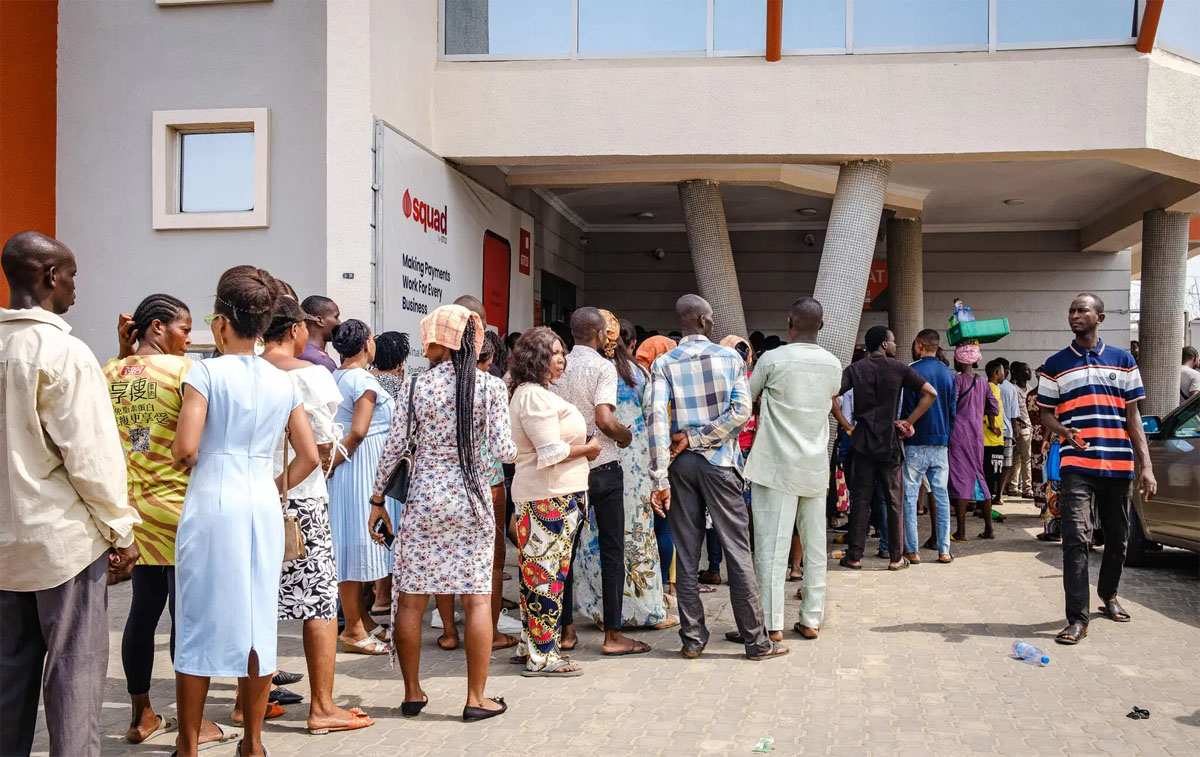
CBN fines bank found hoarding cash N150m
The Central Bank of Nigeria (CBN) has imposed a N150 million fine on a commercial bank for failing to dispense cash through its Automated Teller Machines (ATMs).
This action follows an unannounced inspection by the apex bank, which uncovered deliberate cash hoarding and ATM manipulation by the erring bank.
Sources within the CBN revealed that the sanctioned bank was caught disabling its ATMs, thereby denying customers access to their funds while prioritizing cash disbursements to select VIP clients.
A staff member of the CBN stressed that the apex bank would not tolerate such practices.
“The Bank will not spare any Deposit Money Bank (DMB) caught in the act of hoarding cash or found favoring VIP customers over other customers,” the official stated.
To this end, the CBN has intensified spot checks on banks nationwide, exposing various illicit cash-handling practices by some unscrupulous financial institutions.
READ ALSO:
- Lagos-Calabar coastal road: Train track work begins 2025, says minister
- Three days to Christmas, food prices, transport fares hit the roof
- Three Ogun varsity students die auto crash
For now, the CBN is imposing financial penalties on defaulting banks. However, according to the official, the next phase of enforcement will include publicly naming and shaming offending banks and prosecuting implicated bank officials.
“This fine is just the beginning. The CBN is determined to hold banks accountable for any actions that undermine public trust and the integrity of the banking system,” the official added.
Despite the ongoing challenges, the CBN has reiterated its commitment to promoting cashless banking in the country.
Another senior official disclosed that the apex bank’s management is intensifying efforts to encourage the use of electronic channels for transactions.
“The frustration faced by account holders is undermining our push for a cashless economy. We are doubling down on initiatives to restore public confidence in electronic banking solutions,” the official said.
CBN fines bank found hoarding cash N150m
metro
Three days to Christmas, food prices, transport fares hit the roof

Three days to Christmas, food prices, transport fares hit the roof
According to the Universal Declaration of Human Rights ,UDHR, Article 25(1), everyone has the right to standard of living adequate for their health and well-being, which includes access to food, clothing, and housing.
Similarly, the International Covenant on Economic, Social and Cultural Rights ,ICESCR, Article 11 emphasizes the right to an adequate standard of living, including sufficient food.
Furthermore, the Covenant recognizes the fundamental right to be free from hunger and advocates for measures both individual and international to eliminate hunger.
It is widely acknowledged that inadequate food availability can lead to health issues, as food is as essential to health as air is to breathing.
The situation is exacerbated by the rising costs of healthcare, which are increasingly out of reach for many due to ongoing inflation.
Difficult situations
In Nigeria, harsh economic conditions are forcing households into difficult situations, with many going to bed hungry due to skyrocketing food prices. With Christmas just three days away, our correspondents visited local food markets in Lagos and Abuja to see how citizens are coping with the rising cost of goods and services.
In the locations, buyers and sellers expressed their frustrations over the increasing prices of food items.
At Agric Market in Ikorodu, Mummy Somto, lamented that she had never witnessed such high prices in her lifetime.
She noted that a chicken that cost N15,000 last year now sells for N35,000, with only older layers available for N15,000.
READ ALSO:
- Three Ogun varsity students die auto crash
- Dangote, MRS agree to sell petrol at N935/litre nationwide
- How another Nigerian allegedly murdered by four South Africans
“What will that do for my family? We have never seen it like this in Nigeria. I hope this hope is the hope,” she said.
At Mile 12 International Market, trucks filled with perishable goods such as tomatoes, peppers, onions, cucumbers, potatoes, carrots, cabbages, and other vegetables were lined up for unloading while eager buyers waited nearby.
When asked about the high prices despite the abundance of food, truck owner Alhaji Shehu, explained that the situation arose from expenses related to diesel, farm security, police and military checkpoints before reaching Lagos.
He mentioned spending between N500,000 and N800,000 per truck, which inevitably raises prices.
“This is our business, and we are not pleased with the high costs either. If I sell my goods, I still need to buy what I don’t sell. It’s suffocating us. I also commend the buyers,” Shehu added.
Bags of rice
Mrs. Bukky Osagie, a rice vendor at Mike 12, shared her concerns about escalating prices: “Last December, a bag of rice was between N65,000 and N70,000. Today, it’s from N95,000 depending on the brand. Traders are exhausted. People are buying half bags because they can’t afford full ones. They also need to buy additional items. How do people survive this trend? This has to stop if the government truly cares for its citizens.”
At Daleko Market, Mrs. Hannah, was seen pricing vegetable oil when she declared, “Whether the devil likes it or not, we will celebrate with our families and share love during this season. We will just have to adjust our spending according to our means.”
READ ALSO:
- Copyright: Court orders Adele’s song removed from platforms
- Ibadan, Abuja, Anambra stampedes: IG orders probe, threatens prosecution of organisers
- Gabriel Jesus shines as Arsenal thrash Palace 5-1 in London derby
As of the time of filing this report, a 25-liter container of vegetable oil was selling for between N86,000 and N95,000 depending on the brand.
Garri was priced at N56,000, while Ijebu Gaari was N58,000.
A carton of satchel tomatoes ranged from N8,800 to N9,200 while a pack of spaghetti cost N23,000.
70 grams of noodles were priced between N9,800 and N10,500. A roll of curry or thyme sold for N550 each, while small bulbs of onion reached as high as N200, making them almost unaffordable for many.
Christmas cheer
In Abuja, soaring food prices and steep transportation costs are casting a shadow over Christmas celebrations for many families.
The cost of essential holiday items, such as poultry, has surged, with chickens priced between ¦ 15,000 and ¦ 25,000, and turkeys reaching up to ¦ 130,000 in some markets.
Sunday Vanguard learned that rising feed prices, transportation costs, and supply chain disruptions are driving these increases.
Additionally, a 50-kg bag of rice now costs between ¦ 94,000 and ¦ 125,000, a significant leap from previous months.
Transportation fares have also skyrocketed, with transport fare from Abuja to major cities such as Lagos, Port Harcourt, and Enugu increasing from 15 percent to 35 percent in the past month.
For instance, a trip from Abuja to Lagos by road, which previously cost ¦ 28,000–¦ 35,000, now ranges between ¦ 46,500 and ¦ 60,000.
Three days to Christmas, food prices, transport fares hit the roof
VANGUARD
metro
Three Ogun varsity students die in auto crash

Three Ogun varsity students die in auto crash
The Police Command in Ogun State has confirmed the death of three university students in a single-vehicle accident on the Ilisan-Ago-Iwoye Road.
In a statement issued on Saturday, the command’s spokesperson, SP Omolola Odutola, revealed that the victims were suspected to be students of Olabisi Onabanjo University (OOU), Ago-Iwoye.
The incident, which occurred around 3:30 p.m. on Friday, involved an Opel car with registration number AAA-126 HE. The vehicle was reportedly driven by Adekunle Adebiyi, a resident of 5 Sunmibare Street, Awa Ijebu.
“The accident was caused by overspeeding, leading to the driver losing control and the vehicle flipping into the bush,” Odutola explained.
READ ALSO:
- Dangote, MRS agree to sell petrol at N935/litre nationwide
- How another Nigerian allegedly murdered by four South Africans
- Copyright: Court orders Adele’s song removed from platforms
She further disclosed that one male passenger, whose identity is yet to be confirmed but is believed to be an OOU student, died on the spot. His body was taken to the mortuary at General Hospital, Ijebu Ode.
“Two female students from Olabisi Onabanjo University — Dada Oluwanifesimi, 18, and Miracle Daniel, 19 — were rushed to Love and Care Hospital but sadly passed away while receiving treatment,” she added.
The vehicle involved in the crash has been recovered and is now in police custody.
Odutola assured the public that further updates on the tragic incident would be provided and advised motorists to adhere to traffic regulations, particularly during the festive season.
Three Ogun varsity students die in auto crash
-

 Railway17 hours ago
Railway17 hours agoLagos Rail Mass Transit part of FG free train ride – NRC
-

 metro2 days ago
metro2 days agoCourt stops customs from seizing imported rice in open market
-

 metro3 days ago
metro3 days agoFG transfers electricity market regulatory oversight in Lagos to LASERC
-

 metro2 days ago
metro2 days agoIbadan stampede: Tinubu orders probe as death toll hits 40
-

 metro2 days ago
metro2 days agoAfe Babalola: Court grants Dele Farotimi bail, barred from media interviews
-

 metro18 hours ago
metro18 hours agoNIMC warns against extortion, reaffirms free NIN enrollment
-

 metro1 day ago
metro1 day agoIbadan stampede: Ooni reacts after arrest of ex-wife
-

 News2 days ago
News2 days agoAdebayo Ogunlesi, 2 other Nigerians make Forbes 50 wealthiest Black Americans list 2024



